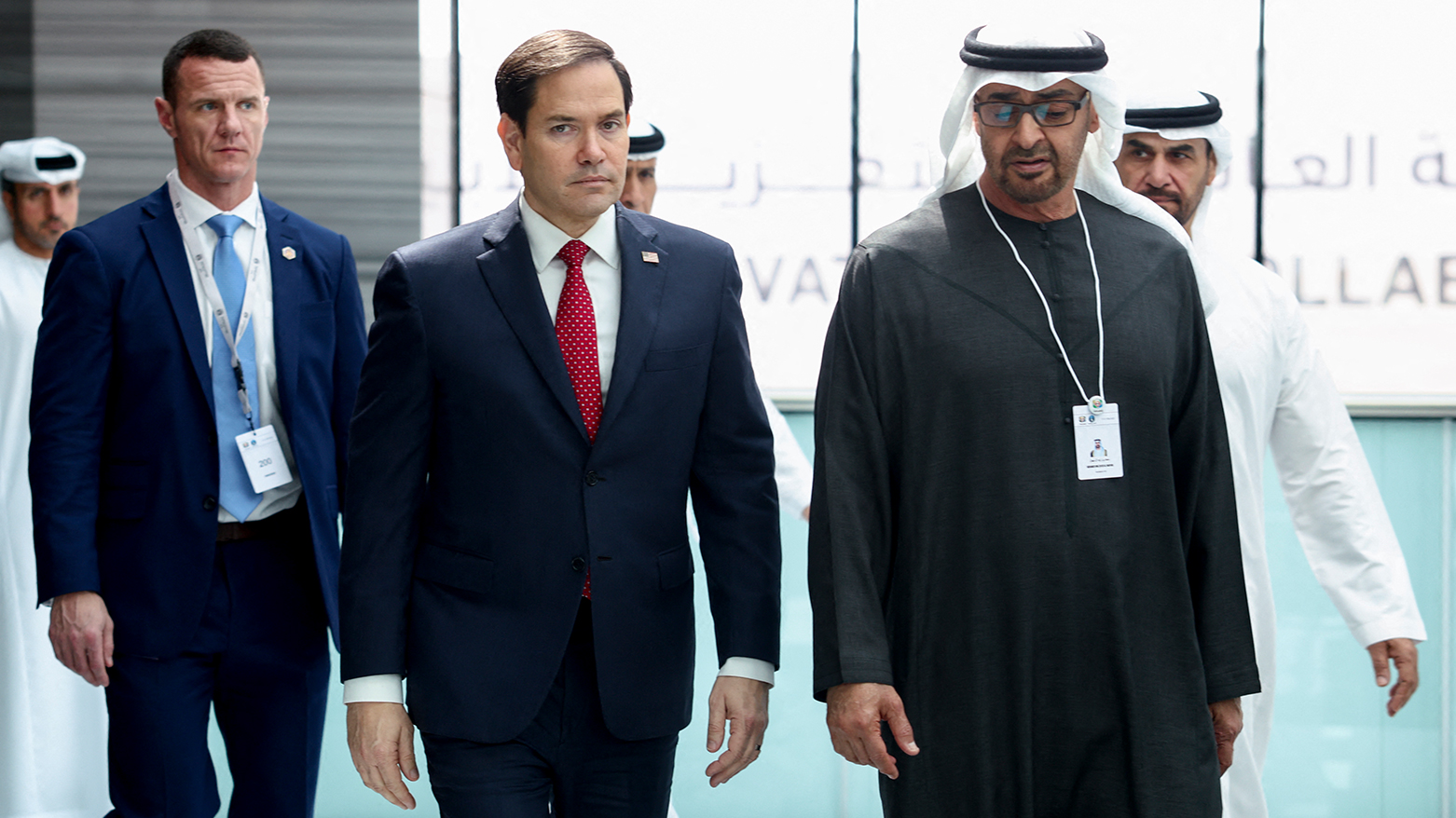US Secretary of State Visits UAE
“The Secretary conveyed his appreciation for the strength and enduring nature of the relationship, one marked by strong economic ties, defense cooperation, and mutual interests in regional stability.”

WASHINGTON DC, United States (Kurdistan24) - U.S.Secretary of State Marco Rubio, on Wednesday, visited the United Arab Emirates (UAE.) There, in Abu Dhabi, Rubio met with the UAE President, His Highness Sheikh Mohamed bin Zayed Al Nahyan, along with a number of his senior advisors, including Abu Dhabi’s Deputy Ruler and National Security Adviser, H.H. Sheikh Tahnoon bin Zayed Al Nahyan; Deputy Prime Minister and Minister of Foreign Affairs, H.H. Sheikh Abdullah bin Zayed Al Nahyan; and Deputy Chairman of the Presidential Court for Special Affairs, H.H. Sheikh Hamdan bin Mohammed bin Zayed Al Nahyan; along with Yousef Al Otaiba, the UAE’s ambassador to Washington.
Rubio’s visit to the UAE followed two days in Riyadh where he headed a U,S. delegation that included National Security Advisor Mike Waltz and Special Envoy to the Middle East, Steve Witkoff.
On Monday, they met with Saudi Crown Prince and de facto leader, Mohammed bin Salman , as well as Saudi Foreign Minister, Prince Faisal bin Farhan bin Abdullah. And on Tuesday they met with a senior Russian delegation in order to prepare for a U.S.-Russian summit that would help end the war in Ukraine.
Read More: US Officials Meet Saudi Leaders Ahead of Talks with Russia
Like the Saudis, the UAE has been engaged in mediating between Ukraine and Russia, and specifically, the UAE has helped to arrange prisoner exchanges.
In addition, the Trump administration has been cultivating ties with the Gulf Arabs, while taking a tough line toward Iran and its regional proxies.
Thus, the meeting between Rubio and Al Nahyan “reaffirmed the vitality of the U,S.-UAE strategic partnership,” according to a read-out from State Department Spokesperson Tammy Bruce.
“The Secretary conveyed his appreciation for the strength and enduring nature of the relationship, one marked by strong economic ties, defense cooperation, and mutual interests in regional stability,” her statement continued.
That included “the remaining challenges in Gaza, ways to advance stability in Syria, Lebanon, and across the region,” the statement added.
That also included—in a pointed reference to one Iranian proxy, the Houthis in Yemen—“ways to address threats to freedom of navigation in the Red Sea.”
The statement also hailed the UAE’s work in the development of computer technology. That may be somewhat surprising, as most people do not usually think of the UAE as a technology leader, but that would appear to be a misapprehension.
“The Secretary discussed the UAE’s significant strides in both leading edge technology, artificial intelligence (AI), and quantum computing,” Bruce’s statement explained. “He expressed his wish for the two nations to build on their already strong economic bonds.”
During Trump’s first term, his administration took a novel approach to the Arab-Israel conflict. The U.S. sponsored normalization agreements between two Arab countries, the UAE and Bahrain, and Israel.
The agreements were called the “Abraham accords,” reference to the common ancestor of the Jews and the Muslims.
Abu Dhabi has an Abrahamic Family House. It is designed as a tangible demonstration of religious tolerance and includes a Jewish synagogue, Islamic mosque, and Catholic church.
Secretary Rubio “welcomed his first visit to the Abrahamic Family House,” Bruce’s statement concluded.
Unlike the U.S., the UAE did not issue an official statement about the talks with Rubio. However, the official UAE media outlet (WAM), did issue a report.
In many respects, it paralleled the U.S. readout of the meeting, stressing the importance of the U.S-UAE relationship and shared efforts of the two countries in promoting regional stability.
However, much more than the U.S. read-out, the WAM report highlighted the importance of the conflict between the Palestinians and Israel, particularly in Gaza.
It included the UAE’s “firm” rejection of any resolution that would displace the Palestinian people—which Trump, in fact, has proposed, even as he has also said that he is open to alternative solutions that the Arabs might propose.
Thus, Saudi Arabia is hosting an Arab summit to deal with the issue later today, and, perhaps, some new ideas may emerge.